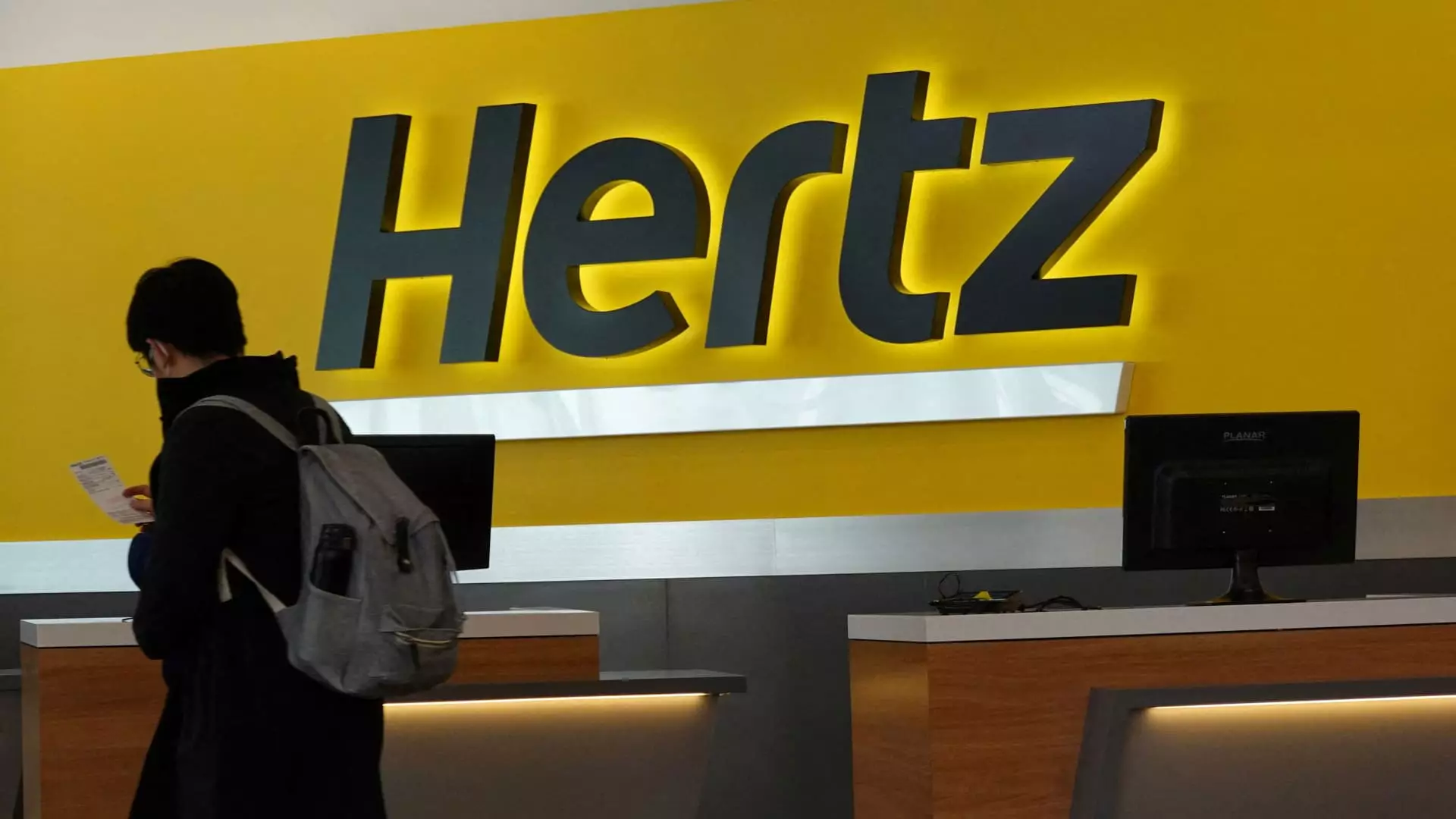In a shocking display of market volatility, Hertz Global’s stock took a nosedive, tumbling nearly 17% after the release of disheartening first-quarter earnings. The headlines reverberated across financial circles, capturing attention not just for the staggering percentage drops, but also for the context they held within the automotive and rental industries grappling with a rapidly changing economic landscape. As the dust settled, it was evident: Hertz is at a critical crossroads, and the stakes could not be higher for its future viability.
The company had previously positioned itself with a glimmer of hope—showing impressive stock performance earlier in the year thanks to high-profile backing from investing luminaries. However, the steep decline following their recent financial disclosures raises urgent questions about their strategy and overall market health. With a reported loss of $1.12 per share against expectations of a mere 97 cents, it’s clear that the investment community is no longer willing to overlook Hertz’s mounting operational challenges.
A Financial Strategy in Disarray
Hertz’s announcement of a $250 million stock offering to address debt obligations has sparked a wave of skepticism among analysts. The CFO, Scott Haralson, presented the issuance as a prompt response to deleveraging efforts—the very idea that the company could turn it around through improved financial dynamics strikes a chord of desperation. As investors digested this news alongside plummeting automotive revenues—which fell to $1.81 billion against estimates of $2 billion—concern morphed into doubt. The company’s imbalanced financial approach reflects a concerning trend where quick fixes are prioritized over sustainable growth.
What’s alarming is the lack of aggressive planning in bolstering rental car availability amidst declining consumer sentiment, worsened by geopolitical tensions like tariffs that hit the auto industry hard. With fewer cars to rent and an overarching sense of diminishing demand, Hertz’s path forward is riddled with uncertainty. They are not merely pruning services; they are curtailing access at a time when travelers would otherwise be seeking options. In an age when experiences drive customer loyalty, how much longer can they operate on the fringes of adequacy?
The “Back-to-Basics Roadmap”: A Double-Edged Sword
The marketing of the “Back-to-Basics Roadmap” plan offers itself as a promise of transformation, hence providing a façade of optimism amidst the chaos. But what does this really mean for the average consumer? The company’s insistence on improving vehicle utilization sounds appealing, yet the execution reveals a stark gap between intention and reality. As Hertz aims to provide “more demand than we can satisfy,” the reality is that their strategies come off as mere platitudes in the face of dwindling profits.
Hertz touts operational improvements, claiming a $92 million reduction in operating expenses, but does this truly translate to a healthier bottom line or just more cost-cutting band-aids on gaping operational issues? Until the company can demonstrate tangible, customer-facing enhancements rather than boardroom jargon, their credibility hangs by a thread. Analysts who suggest the conditions ahead are net negative recognize an unsettling reality: without reinvigorating demand, no amount of polished rhetoric will suffice.
Investor Fatigue: A New Worry
The earlier optimism represented by hedge funds backing Hertz, notably Bill Ackman’s Pershing Square Capital management, brings into question whether the investment community is experiencing fatigue with the ongoing turmoil. Having once catapulted the stock upwards, support that once felt solid is now shadowed by fluctuations in confidence.
With total shareholder confidence buckling under the weight of economic realities and operational missteps, the risk of further declines looms ominously. Can Hertz course-correct in this climate? Investors are increasingly wary, wondering if any further gains are even sustainable or merely deceptive upswings before another sharp turn downward.
Transcending mere numbers, Hertz’s plight is a staunch reminder of a business grappling with the intricacies of today’s consumer landscape—not only a tale of a company in decline but also a critical instant for reflection on its strategies and consumer engagement. As the rental car giant faces both its operational shortcomings and external pressures, the path forward demands a real, honest, and robust examination of its business model moving forward.

